Creating an eco-friendly yard is a great way to contribute to environmental sustainability and promote biodiversity. You can start by making small changes, and either add to things that may already be eco-friendly, or gradually begin making some changes. Your yard can be a better place for pollinators and wildlife, and your actions will contribute towards a healthier planet.
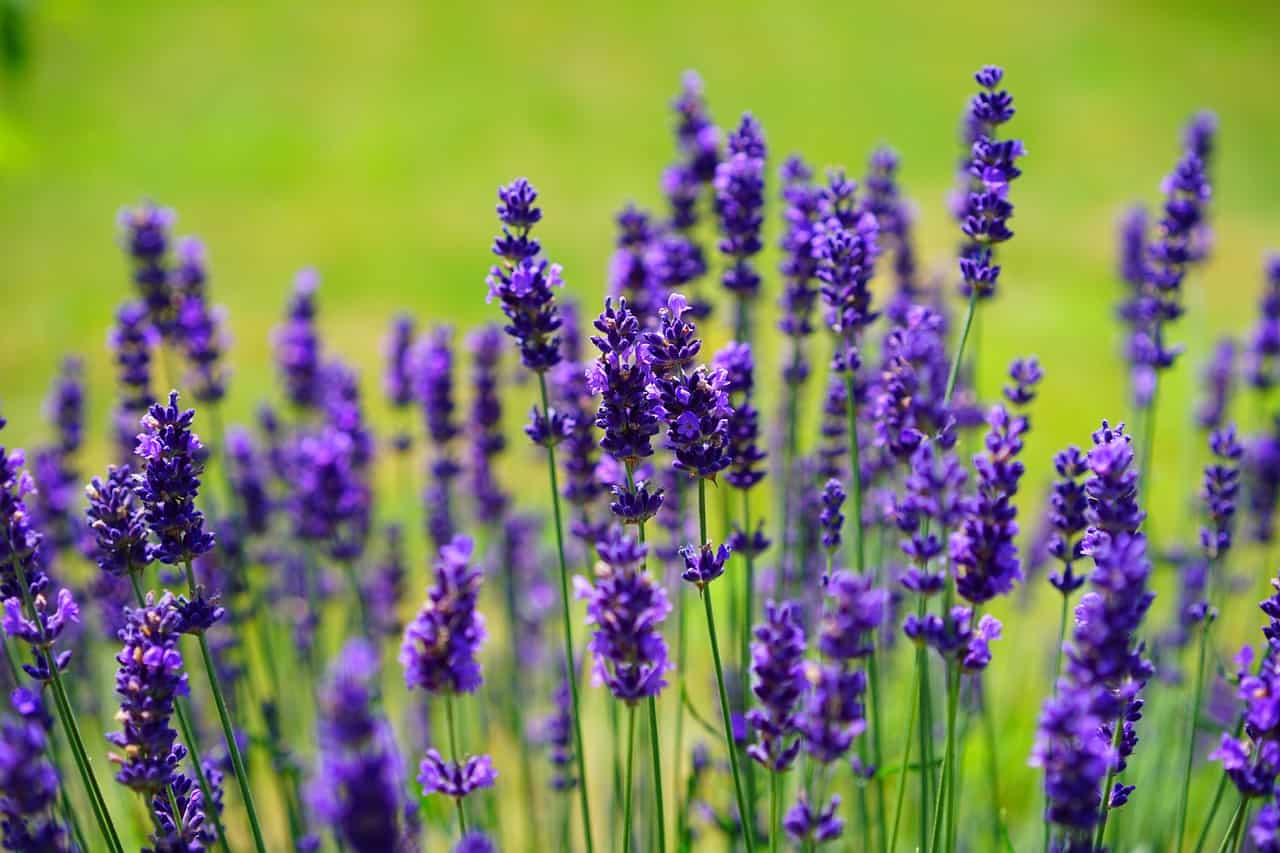
Here are some tips to help you make your yard more eco-friendly.
(this post contains Amazon affiliate links)
Plant native species
Choose plants that are native to your region as they are adapted to the local climate and require less water and maintenance. Native plants also provide habitat and food for local wildlife. You may also want to consider removing invasive species that may be in your yard, such as barberry bushes.
Reduce water usage
Implement water-saving techniques such as using a rainwater barrel for irrigation. Install a drip irrigation system to minimize water waste, and water your plants during cooler hours to reduce evaporation. If you have a sprinkler system, use a timer so that it the system runs at cooler times of day when water can more easily saturate the ground and not evaporate as quickly.
Reduce lawn area
Lawns require a significant amount of water, pesticides, and maintenance. Consider replacing parts of your lawn with native plants, flower beds, or vegetable gardens, which can provide beauty and functionality while supporting local ecosystems.
Xeriscaping is the process of landscaping and gardening that reduces the use of water (you can find some great xeriscaping books if you want to learn how to transform your lawn into one that need minimal watering).
Compost
Start a compost bin or pile to recycle kitchen scraps, yard waste, and leaves. Compost adds nutrients to the soil and reduces the need for chemical fertilizers. You can set up a kitchen compost bin to collect food scraps, reducing the amount of trips you take outdoors to add to your bin.
Avoid chemical pesticides and fertilizers
Instead of using chemical-based products, opt for organic or natural alternatives. There are many alternatives to traditional chemicals, such as corn gluten weed preventer or natural pest control for vegetable gardening.
Beneficial insects, such as ladybugs and praying mantises, can help control pests naturally.
Create wildlife habitats
Incorporate elements like birdhouses, butterfly gardens, or bee-friendly plants to attract and support local wildlife. You can also provide fresh water with a bird bath or a water feature (such as a small pond).
Consider leaving a section of your yard untamed to provide shelter and food for small animals.
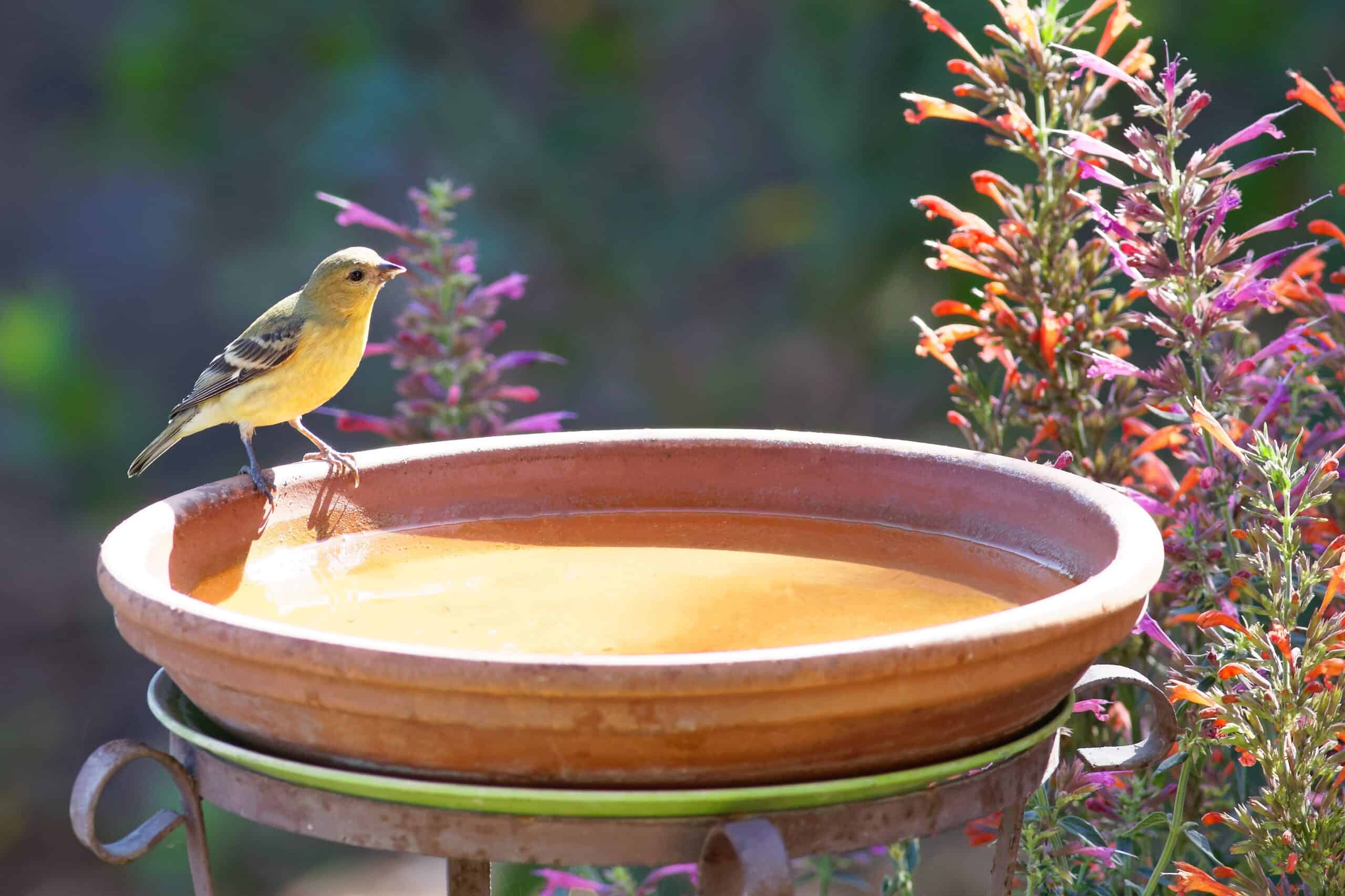
Conserve energy
Plant trees strategically to provide shade for your home during hot summer months, reducing the need for excessive air conditioning. Use solar-powered outdoor lighting to minimize energy consumption.
Use eco-friendly materials
When building or renovating your yard, choose sustainable and recyclable materials. Opt for reclaimed wood, recycled plastic, or natural stone for pathways, decking, or seating areas.
Practice responsible lawn care
When mowing, set your lawn mower blades to a higher setting to promote stronger root growth and retain moisture in the soil. Leave grass clippings on the lawn as natural mulch, which adds nutrients and reduces waste. You can also find push mowers or electric mowers that do not rely on gas fuel.
Remember, creating an eco-friendly yard is a gradual process. Start by incorporating one or two changes at a time, and over time, you will see a significant positive impact on the environment. You can also share your eco-friendly practices with neighbors, friends, and family to inspire them to adopt sustainable yard practices as well. Consider attending local gardening classes or programs that support eco-friendly initiatives to learn more and share ideas.
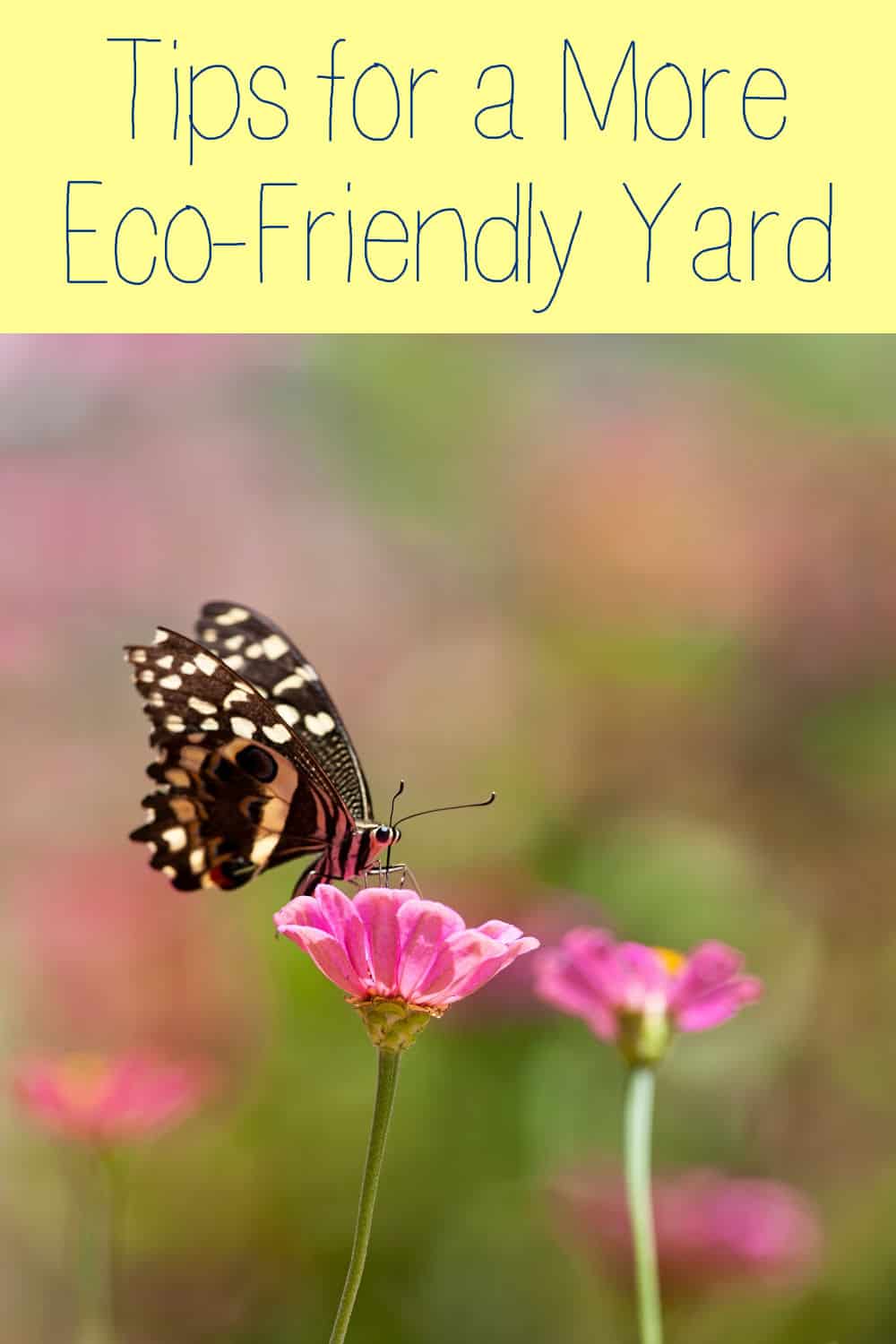

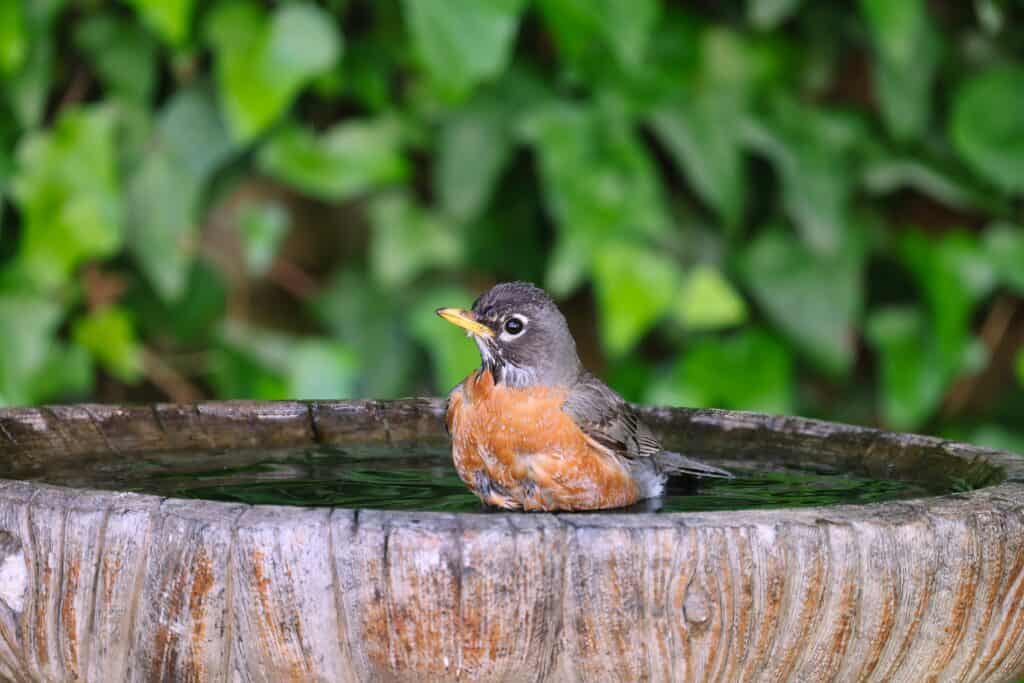

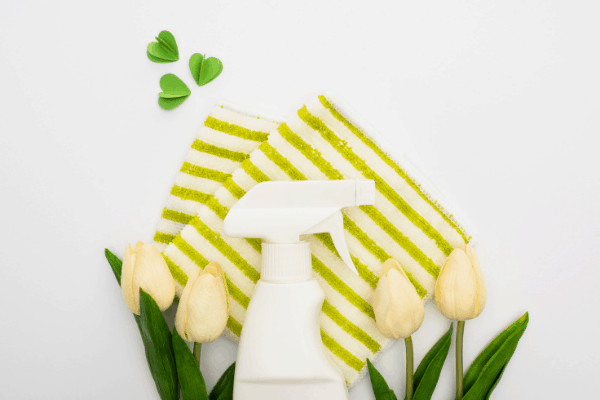
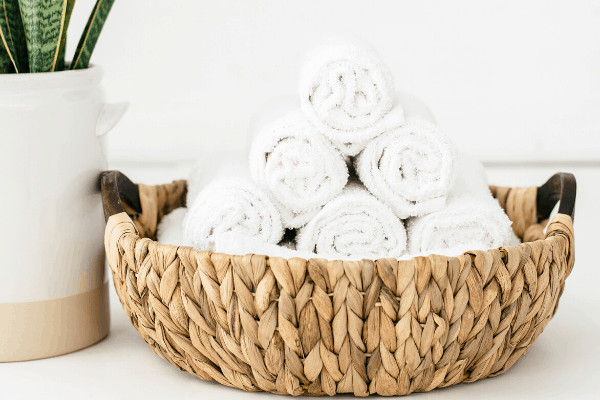

Your article on creating an eco-friendly yard is an excellent guide for anyone looking to contribute to environmental sustainability. The tips provided are practical and easy to implement, making it accessible for readers to make positive changes in their own yards. The emphasis on native plants, water conservation, and wildlife habitats shows a genuine commitment to promoting biodiversity. Keep up the great work in inspiring readers to take action for a healthier planet!
I need to keep these tips in mind! I don’t like spraying a lot of chemicals in the yard.
These are great tips to remember, I also don’t like to spray all kinds of chemicals round my home.
Great tips to keep in mind for a more eco friendly yard, I love when lawns help support native flowers and butterflies.
The corn gluten weed preventer sounds good. I’m going to take a look into it.
I would like to create a compost bin. I think it’s a great idea for my yard, and I also need to reduce water usage!
These are all really great and very helpful tips! I want to keep our yard more eco friendly
I want to have a flower garden but I know I don’t have the time to maintain it. So I have skipped it. Maybe one day. Plus, our summers are pretty brutal.
We like to keep are garden as eco friendly as we can. We grow vegetables and also have a compost bin.
Some really good points here, we have tried to make our garden very wildlife friendly. But it has reminded me that I need to fill up our bird feeders. There’s a lot we want to do to our garden so I’ll have to consider some of these things x
We do a lot of these, I do love seeing the wildlife visit and we now have a wide range of wild birds visit
These tips are awesome. Protecting the environment has never been more important and it can start with making a more eco friendly yard
Your tips are amazing and very very helpful! There is a lot for us to do but we’re starting with compost lol…Thank you for the amazing post.
Transforming your yard into an eco-friendly haven is a wonderful initiative for both nature and our planet. Small changes can lead to significant positive impacts, fostering biodiversity and supporting pollinators. Let’s all play our part in creating a greener world!
Oh I never use chemicals on my lawn or garden…if it’s not healthy for the animals and nature, it’s not healthy for us. That has always been my firm belief. Composting is also such a great way to reduce waste. Great tips!
We aim to have an eco-friendly yard and have a composting bin and water butt to collect rain water.
Yeah!! Thanks for sharing these useful tips to care for our planet. Learnt some of the tips & gonna apply on my lifestyle for a change. Cheers SiennyLovesDrawing